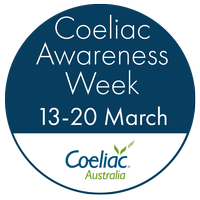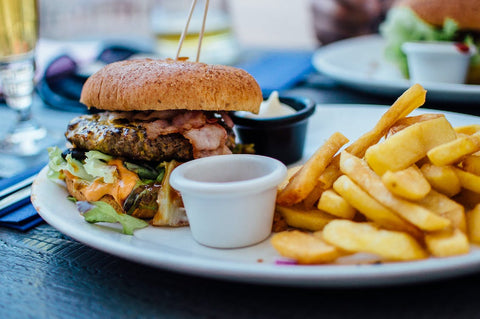March 13-20 is Coeliac Awareness Week. Did you know that 1 in 70 Australians have Coeliac Disease, however, around 80% of this number remain undiagnosed? This means the majority of people who have it have no idea! In this month’s blog our resident dietitian and gut health guru Nicky Saliba takes a closer look at Coeliac disease.
What is Coeliac disease?
Coeliac disease is an autoimmune condition where the body’s immune system reacts abnormally to gluten causing damage to the small bowel. This can lead to nutrient deficiencies and inflammation in the body. You must be born with a genetic predisposition to get it, however, it can develop at any age. There is no cure and a strict lifelong gluten-free diet is the only way to manage it.
What are the symptoms of coeliac disease?
Some people suffer from severe symptoms while others may be completely symptom-free. Just because you experience no symptoms, or very mild symptoms does not mean you can be relaxed about following a gluten-free diet. Symptoms may include one or more of the following:
-
 Persistent gastrointestinal symptoms e.g. diarrhoea, constipation, nausea, vomiting, flatulence, cramping, bloating, abdominal pain
Persistent gastrointestinal symptoms e.g. diarrhoea, constipation, nausea, vomiting, flatulence, cramping, bloating, abdominal pain - Prolonged fatigue, weakness and lethargy
- Iron deficiency anaemia and/or other vitamin and mineral deficiencies
- Failure to thrive or delayed puberty in children
- Unexplained weight loss
- Severe or recurrent mouth ulcers
- Skin rashes such as dermatitis herpetiformis
People who experience any of the following should also be screened for coeliac disease
- Early onset osteoporosis
- Unexplained infertility or recurrent miscarriage
- First degree relatives of people with coeliac disease
- Persistently raised liver enzymes with unknown cause autoimmune disease
- Dental enamel defects
How is coeliac disease diagnosed?
It is very important that you do not cut out gluten from your diet before being tested for coeliac disease as it can make the tests used to diagnose it unreliable. If you have cut out gluten you will need to do a gluten challenge where a minimum of four slices of wheat-based bread or equivalent needs to be eaten per day for at least six weeks before testing.
A blood test called a coeliac serology test is then done to screen for Coeliac disease which measures the antibody levels in the blood which are usually high in someone with untreated coeliac disease. If you test positive this then needs to be followed up with a small bowel biopsy to confirm the diagnosis.
What should you do once you are diagnosed with coeliac disease?
-
Once your diagnosis is confirmed you must start a strict gluten-free diet.
- Make an appointment with your GP to screen for any vitamin or mineral deficiencies and associated conditions
- All adults diagnosed with Coeliac disease should have a bone density scan to screen for osteopenia or osteoporosis
- Make an appointment with an Accredited Practising Dietitian who specialises in Coeliac disease
- Make sure all family members are screened as well as immediate family members have a 1 in 10 chance of also having it
What can you eat on a gluten-free diet?
- Fruits
- Vegetables
- Legumes
- Nuts & seeds
- Meat, fish, chicken, eggs, tofu and seafood
- Gluten-free breads and cereals
- Gluten-free grains and products made from them such as buckwheat, rice, teff, amaranth, corn, millet
- Foods labelled gluten-free
- Activate Foods
Need help navigating a gluten-free diet? Book in with one of our Accredited Practising Dietitians today at eatsense.


